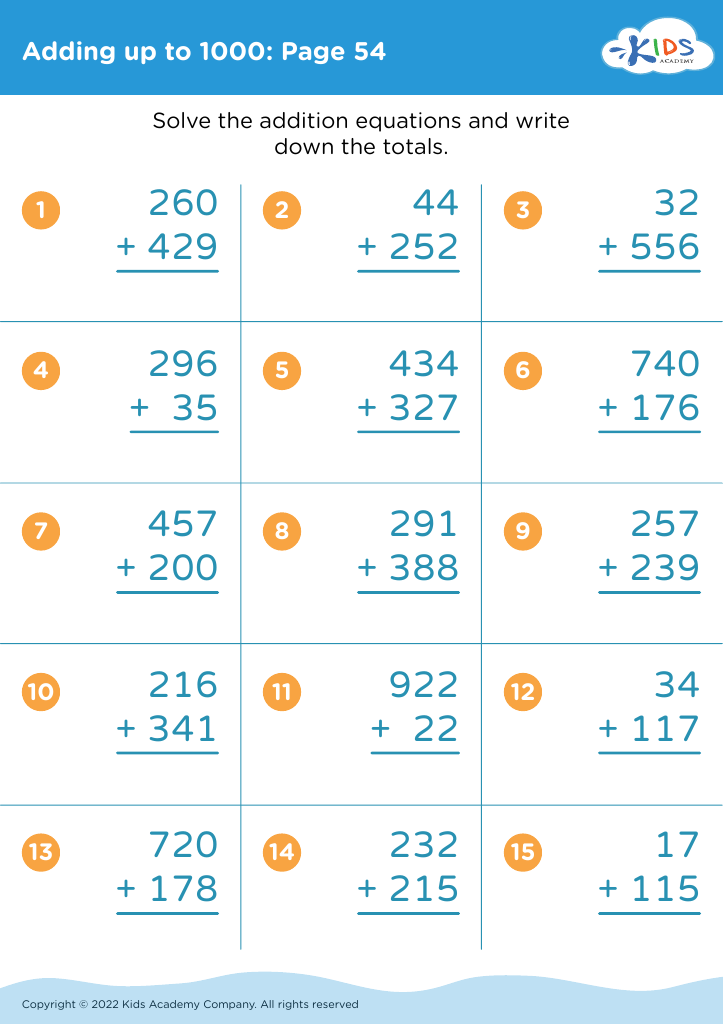Practice subtraction Addition Worksheets for Ages 7-9
5 filtered results
-
From - To
Explore our engaging Practice Subtraction and Addition Worksheets designed specifically for children aged 7-9! These worksheets are perfect for enhancing students' math skills through a variety of fun and challenging activities. Your child will benefit from hands-on practice in both subtraction and addition, building confidence and fluency in their basic math skills. Featuring colorful illustrations, interactive problems, and a range of difficulty levels, these worksheets cater to diverse learning styles. Parents and educators will appreciate our clear instructions and structured approach. Boost your child’s mathematical understanding and make learning enjoyable with our comprehensive collection of worksheets!
Practicing addition and subtraction for children aged 7-9 is crucial for several reasons. At this developmental stage, children are building foundational math skills that are essential not just for academic success but for everyday problem-solving. Mastery of addition and subtraction lays the groundwork for more complex concepts such as multiplication, division, and fractions, which they will encounter in later grades.
Additionally, frequent practice enhances number sense, improves computational fluency, and fosters confidence in math abilities. Children who are comfortable with basic operations are more likely to engage in advanced mathematical thinking and develop a positive attitude toward math as they grow.
Moreover, real-world application can arise from these skills, including budgeting for a small purchase, estimating time, or solving problems involving quantities. Engaging in math through games, puzzles, and interactive activities can make learning fun and relevant, bridging the gap between academic concepts and practical use.
Lastly, supporting children in this area helps to identify learning gaps early on, allowing for timely interventions that can prevent future struggles. Overall, consistent addition and subtraction practice promotes academic resilience and encourages a lifelong love of learning.





















